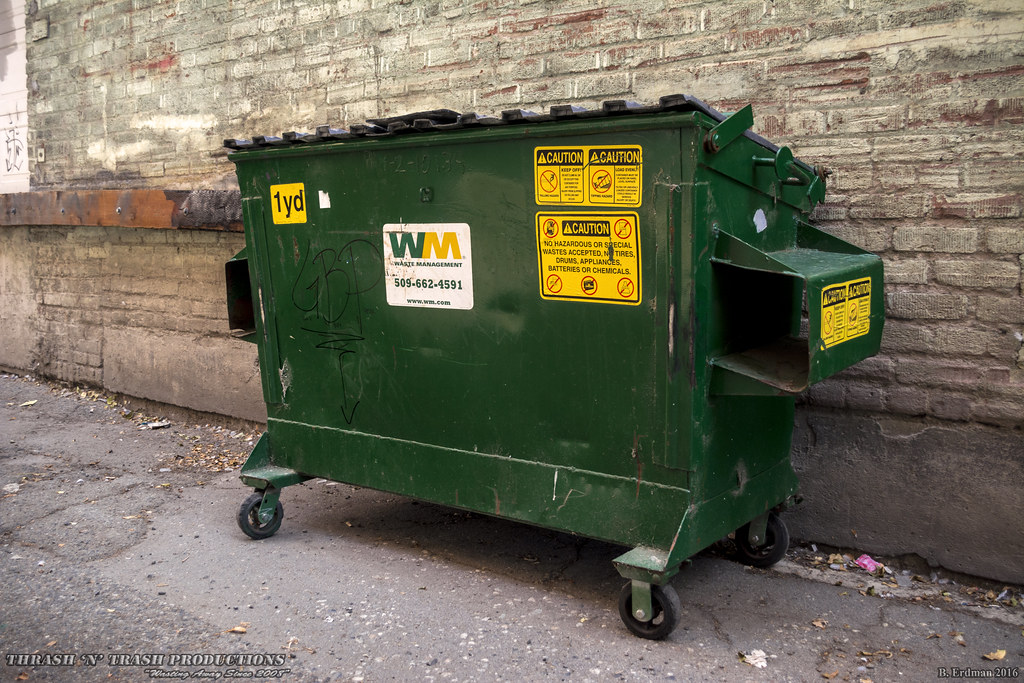
The responsibilities of a waste-management officer in orlando
A waste management company is responsible for executing a wide range of services related to the management and treatment of waste. This includes municipal and private waste collection. These companies create innovative solutions to ensure that waste management is environmentally friendly and compliant. They offer services such as waste collection, recycling, disposal, and more. They specialize in bulk liquid, soil and bulk solids handling.
Professionals in waste management also develop policies and procedures to ensure proper disposal of hazardous and contaminated materials. They ensure that these wastes are safely removed while complying with local statutes. Many waste professionals also work to make sure waste facilities operate efficiently and that their staff perform to the highest level.

Salary for waste management companies in orlando
Are you thinking of a career in waste management? If so, you might be wondering what the average salary is in Orlando. This job pays well in Orlando, FL. The salary of a waste management supervisor is usually $46,000. That's about 5% below the national average and over 25% below other metro salaries.
Although the salary information for this type job is subject to change depending on where you live, it is an average salary of $28,905. You can expect to earn a decent income in Orlando's competitive job market. A competitive total compensation package will be offered, which includes vacations, holidays, and personal time.
Companies that provide waste management services for orlando
A key component of any waste management program for a health facility is medical waste management. Orlando-based companies can assist with this task. UMI, for example, provides medical waste management in Orlando and the surrounding Kissimmee area. They offer a wide range of sharps containers, as well other waste containment options for healthcare facilities. They can also manage inventory for sharps containers.

Sunshine Recycling is a company that provides waste management in central Florida. Wawa Inc., which is a Pennsylvania-based convenience store/gas station combination franchise has been its partner. Wawa initially operated stores in New England. The company expanded further south along the east coastline, including Florida. Wawa is known for its fresh prepared food and fast food.
FAQ
What kind of people use Six Sigma?
People who have worked with statistics and operations research will usually be familiar with the concepts behind six sigma. But anyone can benefit from it.
Because it requires a high level of commitment, only those with strong leadership skills will make an effort necessary to implement it successfully.
What is the difference in a project and program?
A program is permanent, whereas a project is temporary.
A project typically has a defined goal and deadline.
It is often carried out by a team of people who report back to someone else.
A program usually has a set of goals and objectives.
It is usually done by one person.
What are the four main functions of management?
Management is responsible in planning, organizing and directing people and resources. It includes creating policies and procedures, as well setting goals.
Management helps an organization achieve its objectives by providing direction, coordination, control, leadership, motivation, supervision, training, and evaluation.
Management has four primary functions:
Planning - Planning is about determining what must be done.
Organizing – Organizing means deciding how to organize things.
Directing - Directing is when you get people to do what you ask.
Controlling: Controlling refers to making sure that people do what they are supposed to.
What is the difference in leadership and management?
Leadership is about influence. Management is about controlling others.
A leader inspires followers while a manager directs workers.
A leader inspires others to succeed, while a manager helps workers stay on task.
A leader develops people; a manager manages people.
What are the 3 main management styles?
These are the three most common management styles: participative (authoritarian), laissez-faire (leavez-faire), and authoritarian. Each style has its strengths and weaknesses. What style do you prefer? Why?
Autoritarian – The leader sets the direction for everyone and expects them to follow. This style works well if an organization is large and stable.
Laissez-faire - The leader allows each individual to decide for him/herself. This approach works best in small, dynamic organizations.
Participative - Leaders listen to all ideas and suggestions. This is a great style for smaller organizations that value everyone.
Why is Six Sigma so popular?
Six Sigma is simple to implement and can yield significant results. Six Sigma also gives companies a framework for measuring improvement and helps them focus on what is most important.
Statistics
- This field is expected to grow about 7% by 2028, a bit faster than the national average for job growth. (wgu.edu)
- Your choice in Step 5 may very likely be the same or similar to the alternative you placed at the top of your list at the end of Step 4. (umassd.edu)
- The average salary for financial advisors in 2021 is around $60,000 per year, with the top 10% of the profession making more than $111,000 per year. (wgu.edu)
- Our program is 100% engineered for your success. (online.uc.edu)
- The BLS says that financial services jobs like banking are expected to grow 4% by 2030, about as fast as the national average. (wgu.edu)
External Links
How To
How do I do the Kaizen Method?
Kaizen means continuous improvement. The term was coined in the 1950s at Toyota Motor Corporation and refers to the Japanese philosophy emphasizing constant improvement through small incremental changes. It's where people work together in order to improve their processes constantly.
Kaizen is one of the most effective methods used in Lean Manufacturing. This concept requires employees to identify and solve problems during manufacturing before they become major issues. This increases the quality of products and reduces the cost.
Kaizen is a way to raise awareness about what's happening around you. If something is wrong, it should be corrected immediately so that no problem occurs. It is important that employees report any problems they see while on the job to their managers.
Kaizen is based on a few principles. The end product is always our starting point and we work toward the beginning. If we want to improve our factory for example, we start by fixing the machines that make the final product. Then, we fix the machines that produce components and then the ones that produce raw materials. Then we fix the workers, who directly work with these machines.
This is known as "kaizen", because it emphasizes improving each step. When we are done fixing the whole factory, we go back to the beginning and continue until we reach perfection.
To implement kaizen in your business, you need to find out how to measure its effectiveness. There are several ways that you can tell if your kaizen system is working. One way is to examine the amount of defects on the final products. Another way to find out how productive your company has been since you implemented kaizen is to measure the increase in productivity.
A good way to determine whether kaizen has been implemented is to ask why. You were trying to save money or obey the law? It was a way to save money or help you succeed.
If you answered yes to any one of these questions, congratulations! You're ready to start kaizen.